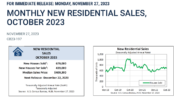There are different types of retirement investment planning you can do depending on your personal situation. The best investment strategy for each person will depend on age, risk tolerance and just plain personal preference.
Whatever your situation is, you should always go into financial investment planning with your eyes wide open. You should at least be aware of the best investment options available to you before you make your decisions.
Asset Allocation | Risk Tolerance
Asset allocation has to do with which asst classes you choose to include in your investment portfolio. Each asset class has it’s own set of risks and reward potentials. The foundation of a good investment planning strategy starts with asset allocation.
The asset classes include stocks, bonds, cash, Treasury Bills, commodities, and money markets. They also include derivatives like futures and options. You can even consider mutual funds, index funds, and ETFs as asset classes of sorts, although most fall under stocks.
Bonds, T-bills, money markets, USD cash and gold are your safer investments. These are lower risk, but also lower return. Riskier investments, but ones with potential for high returns are derivatives like futures and options.
Stocks are somewhere in the middle, although there is a whole spectrum of risk within equities themselves. Small cap stocks, for example, are more risky than large cap stocks. But the small caps are what has the best potential for high growth.
Each asset class has a unique set of risks and rewards. You will want to start here to find out how much of your portfolio you want to devote to each.
Age Considerations
Depending on what age you start your investments will determine what kind of risks you should be taking, in addition to your personal tolerance level. If you are young, you are in a better position to take some more risks with your money.
If you are a younger investor, you will have the time to make up for any losses you may incur. In addition, you will also have time to recover from any cyclical volatility that will occur in any investment portfolio.
If you are older, you shouldn’t take as much risk with your investments since you don’t have as much time to recover should your investments fall. The only caveat to that is if you have excess capital, you can take bigger risks.
What I mean by that is, you may have a large enough amount of investments in safe assets like bonds, savings or gold, enough for you to retire on. If that is the case, you can take any excess that is on top of what you need to live to take bigger risks with.
Market Timing
If you are investing for retirement, it is important to get the market timing down. The economic cycle of recession and recovery generally happen every 7 years or so in the US. You should take that into consideration when you are picking your asset classes.
If you invest in stocks, you should make sure you don’t need access to that money for at least 7 years. That will give it enough time to recover through a recession.
One of the biggest mistakes people make is they leave their money in the stock market when they retire. Then when a recession hits, they are down in the stock market and their retirement portfolio goes down with it. When you are ready to retire, in many cases, you should take the money you need right away and put it into something safe. If you do this right, it will keep you from having to come out of retirement.
A Word About Insurance
It should also be pointed out that insurance is a part of investment planning. While investments are their to grow your money, insurance is there to protect it. You can get home content insurance to insure your valuable property that you have in your house. This can be things like antiques, computers, televisions and home theater systems.
If you own a business, it is also important to have the right commercial insurance in addition to investing your earnings properly. There are legal requirements for most businesses to have insurance, but it may not be enough to cover yourself.








Be the first to comment on "Financial Planning | Retirement Investment Strategy"